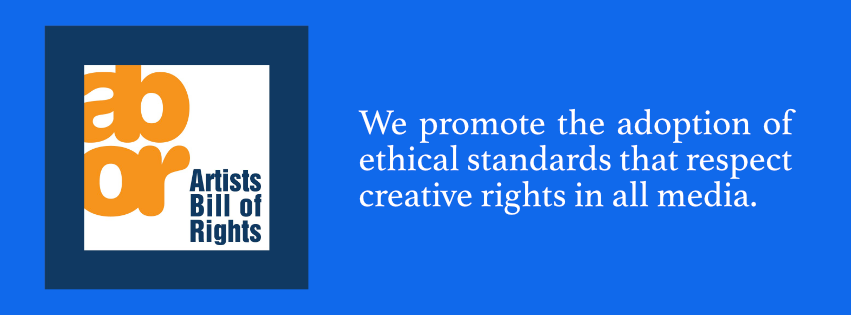Guest blogger Elspeth Rushbrook
 This is my first experience of crowdfunding – a type of online sponsorship for a project (mine was publishing my first novel). It is likely to be my only experience.
This is my first experience of crowdfunding – a type of online sponsorship for a project (mine was publishing my first novel). It is likely to be my only experience.
Normally you hear about the projects that overfunded. But there are many who don’t get what they hoped for, even if they ask for less than they need to raise.
This is the story of one whose corvid landed with less than it needed in its beak. (Read my first piece for an explanation of why it’s crow funding).
Crowdfunding is oversaturated and it’s hard to get all the backing you need, even if you follow the guidelines and make a campaign you’re really proud of that involved most of your waking hours. And some of that’s to do with the crowdfunding system, as I’ll explain.
My views are proudly salmonesque – they go against the popular tide. Or air stream. I hope that other flagging crows might feel that they fly in formation and that disappointment does not equal failure.
I question crowdfunding on a few levels.
One, that we pay fees to the crowdfunding site when actually the platform did nothing to raise my profile. Everyone who knows about my campaign learned through my own contacts and efforts. I could’ve posted this campaign on a free website or a blog host such as Wordpress and had more choice regarding how it looked and what I included. I could have received money without Indiegogo et al, keeping all that I raised.
Second is the even possibility of all or nothing funding option – why?! Why should you lose your pledges because you didn’t make a target? I opted for a flexible campaign where I got whatever I raised but I may have higher fees deducted by the company for doing so.
Third is the ‘give for reward’ mentality of crowdfunding – that your donors will give only if there’s something in it for them. But I quickly saw that perks – the gifts for giving we’re expected to offer – could be unviable. One similar campaign had to allow £500 for perks, which added 50% to her budget. If everyone who gave £10 got my book, I’d have no profit and if I sent the printed version out internationally, I would actually lose money on postage. The same goes for the cost of creating related items. I offered doctored stylised photographs related to my novel. None of my backers chose to claim one, which shows that many people are prepared to give to be supportive without wanting something back.
Fourth is a worrying one – the Parable of the Talents mentality. The parable is a Bible story about servants given uneven amounts of money by their master and then left to see what they would do with it. The one who started with most made more and was praised; the one who had and did least was punished. I’ll keep theology - which I love - out of this, but this story in essence often happens in a business focussed world. Those who have much get more - whether it’s the person who already has public funding receives yet another grant, or the person who has attained lots of support on a crowdfunding platform gets more attention from the site and is allowed to carry on funding after the campaign’s end date.
Your campaign isn’t searchable on the site until you get a certain amount of donations. So no-one can see it unless they have the unique referral link. And some sites won’t let you fund yourself. So how does the corvid take off?!
Then, Indiegogo uses algorithms to decide which campaigns get pushed – ie which ones you get email news about, the ones that appear first as you browse their site. So it’s not even a person that you can haggle with (and I did try!) but a machine running a mathematical programme, based on the Parable of the Talents principle.
At least two crowdfunding sites offer a form of continuing funding after your deadline is up. I opted in, thinking why wouldn’t I want to continue receiving donations after my 30 days? But you can only exercise this option if you make your goal. And you can’t change the target amount or the duration of the campaign once it’s live. So those who have much get more, but those who didn’t do as well have to start a new campaign or think of something else.
Second campaigns perhaps are another post, but I am wary of re-approaching those who already did support me and asking for more – isn’t that just what puts people off giving to charities? And haven’t they already given what they can or wish to, without being pressured? So I need new people, and I already contacted a huge, carefully chosen circle.
What else did I learn?
Despite the pressure towards using it, social media is not the best tool for campaigning. Activity on social media is often overwhelming. I liken it to a busy train station: your train has a few moments on the departure board before it is replaced by the next one. And if you’re not interested in the destination and don’t happen to be looking at the screen that moment, you’ll not see it nor take it in. Out of the bombardment of new tweets and feeds we get into our palms throughout the day, we’ll select the ones that are important, often those from someone we know well and care about. Which is why I think that seeking funding from strangers doesn’t work.
The only companies that contacted me were illicitly touting for their own sites – with further fees. This is forbidden on Indiegogo, though IGG weren’t very good at blocking such messages.
I found that a personal contact worked better. My novel is about church so I made announcement at mine; I am a writer, so I did an open mic slot at writers’ groups and plugged the novel whilst I was up there. I gave out flyers and stuck them in cafes that I am a customer of and which get mentioned in my locally set novel. I wrote to groups that are related to the issues in the novel, eg sexuality, especially those that I had or still have a relationship with. I sent personally tailored emails, not generic circulars.
The received wisdom is that more than a month is too long for a campaign – you’ll lose momentum and your backers will get bored. But I found that many people I contacted took a while to respond. Some didn’t understand that I was effectively asking for sponsorship; they weren’t realising that it was something that they could support financially. Not everyone knows what crowdfunding is and individuals think it’s for companies and vice versa.
It also takes a couple of weeks to contact everybody. Even though I had prewarned many about the campaign, they could do nothing until it went live and they had a link to pass round or a site to visit and donate to. (The exception would be those supporting me with cash). They glance at an email – smart phones are the enemy of good communication - and think, I’ll deal with that later. And then they forget. Or they skim so quickly that they miss the little bit about your campaign and its link. Or they hear you give an announcement and they think: right – I’ll speak to her later and get a flyer. And they talk to someone else and have to rush for the bus.
I was gladdened that several who I thought weren’t bothered had simply forgotten, but it did show me that some needed a couple of reminders and several had just missed what I’d told them. Meeting the same people more than once during the campaign also helped.
Companies and organisations seemed more reticent to promote a funding campaign. It was more likely that they’d plug a finished book than the sponsoring of its production. Several had rules that precluded them. Some were anxious of supporting some and not others, so they helped no-one. Many said that requests like this were received regularly.
Some groups took time to pop me into the next newsletter or make an announcement at the next monthly meeting – which I think have more effect than just a tweet. But that meant catching their cycle, and then the audience getting round to doing something.
What did the crowdfunding site do?
I soon realised that Indiegogo were doing nothing to help with the campaign; though they answered my queries quickly, I felt little of the “customer happiness” in the email address. They did nothing at the end of the campaign to commiserate or advise or even acknowledge that the 30 days were up. My funds were received 7 working days after the campaign ended.
The other crowdfunding sites I found, such as Kickstarter and Crowdfund UK, were very similar to Indiegogo so I don’t think I would benefit from trying another. Patreon has a different ethos re not getting your goal “you stop that talk right now – you didn’t get you goal yet”. It was heartening to read, but this regular rather than ad hoc sponsorship site is also overcrowded and you can languish there with little interest.
Crowdfunding is well named – it is overcrowded rather than the crowds helping you.
I thought of it as an awareness building exercise and tried to accept that some would say no and some would ignore me. It took courage to share a personal work that I have nurtured for so long, and I did worry how reaching this point might feel if I didn’t get what I’d like. But I do have a lump of money that I didn’t. Having a campaign live was an excuse to tell people and galvanise them, though I could have had a publication deadline and asked people to fund me without crowdfunders nibbling at my spoils.
There are many things about crowdfunding sites that I would like to change -
- promoting all campaigns, and those with little raised being given the biggest leg up
- allowing continuing funding for anyone – those who missed the goal to have priority
- to be able to alter the time and goal during the campaign
- people not algorithms as selectors of who is promoted
Actually you can see it’s immoral that crowdfunding platforms accept far more campaigns than they can promote, know that many won’t do well, push the ones that do to give everyone hope and make themselves sound successful, but pocket money from all the campaigns.
Perhaps a truly creator-friendly (as opposed to traditional business friendly) funding platform is what needs to be built, and this has given me an insight to share about what is wrong about the current model.
So what next....? I’d like to share that with you when I know. The link to the book is here and you can see the campaign here. You can contact me on parallel-spirals AT outlook dot com about the campaign and my work.

